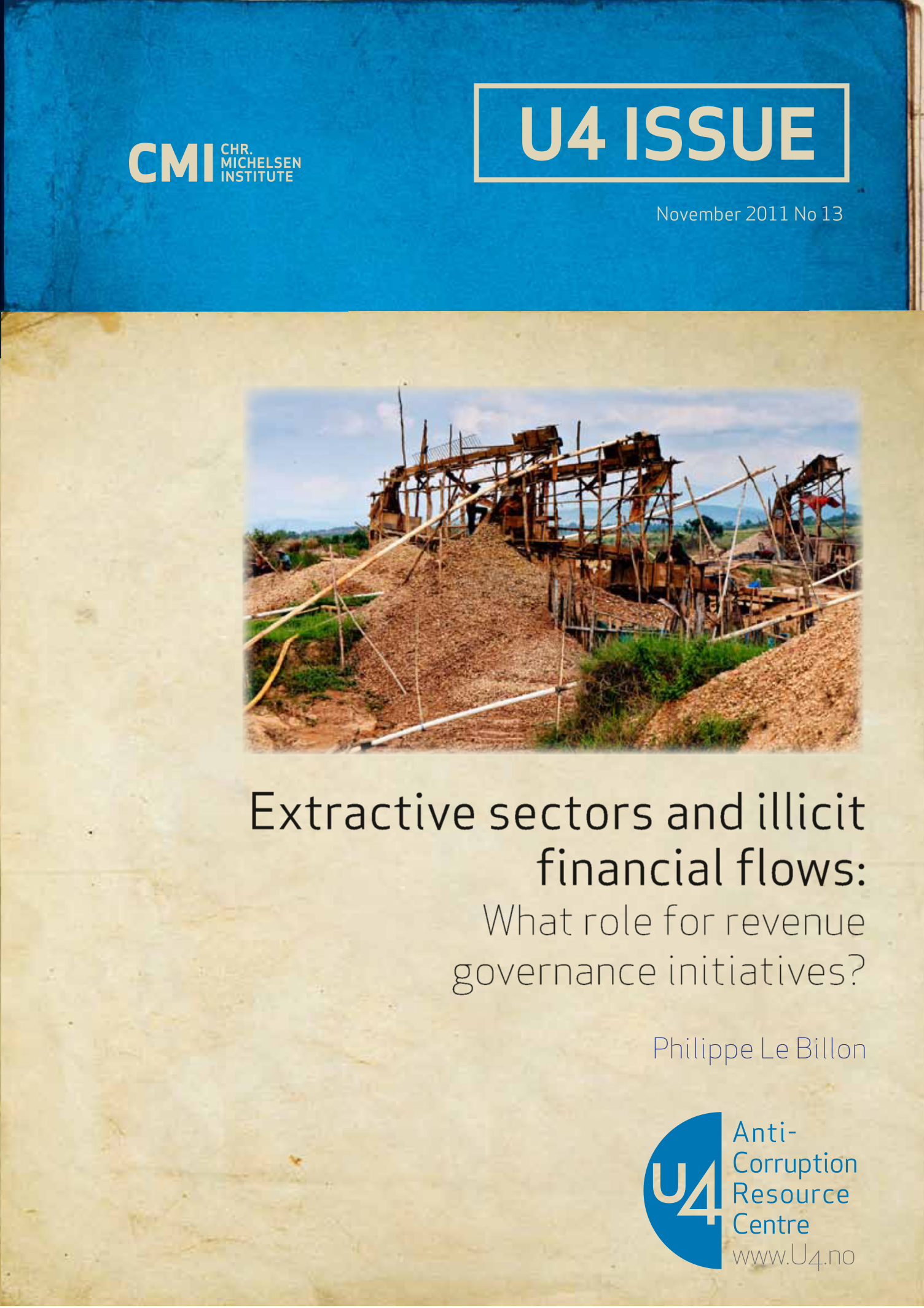U4 Issue
Extractive sectors and illicit financial flows: What role for revenue governance initiatives?
Countries highly dependent on natural resources are among the most severely affected by the problem of illicit financial flows. Despite a lack of definite studies proving the correlation between higher dependency on natural resources and higher levels of illicit flows, there are grounds to believe extractive industries’ revenues provide a large contribution to these flows. Most existing initiatives to address governance issues in extractive sectors have not been designed with the problem of illicit financial flows in mind. They have generally contributed to increased levels of transparency in the sector but have not significantly influenced the likelihood that revenues from natural resources will be misappropriated and illicitly transferred. But extractive industries initiatives can be improved in this regard, and development aid, along with other stakeholders, can help. Among other priorities, transparency initiatives should demand higher disaggregation of information disclosed by extractive companies and host governments. Transparency requirements should extend beyond revenues to licensing, contracts, physical resource flows, and other production factors, as well as to public expenditure. Extractives transparency initiatives also need to integrate elements of the tax justice and tax evasion agendas in order to expand their relevance to the effort to reduce illicit financial flows.

Cite this publication
Le Billon, P. 2011. Extractive sectors and illicit financial flows: What role for revenue governance initiatives? Bergen: Chr. Michelsen Institute (U4 Issue 2011:13) 41 p.
Disclaimer
All views in this text are the author(s)’, and may differ from the U4 partner agencies’ policies.
This work is licenced under a Creative Commons Attribution-NonCommercial-NoDerivatives 4.0 International licence (CC BY-NC-ND 4.0)


